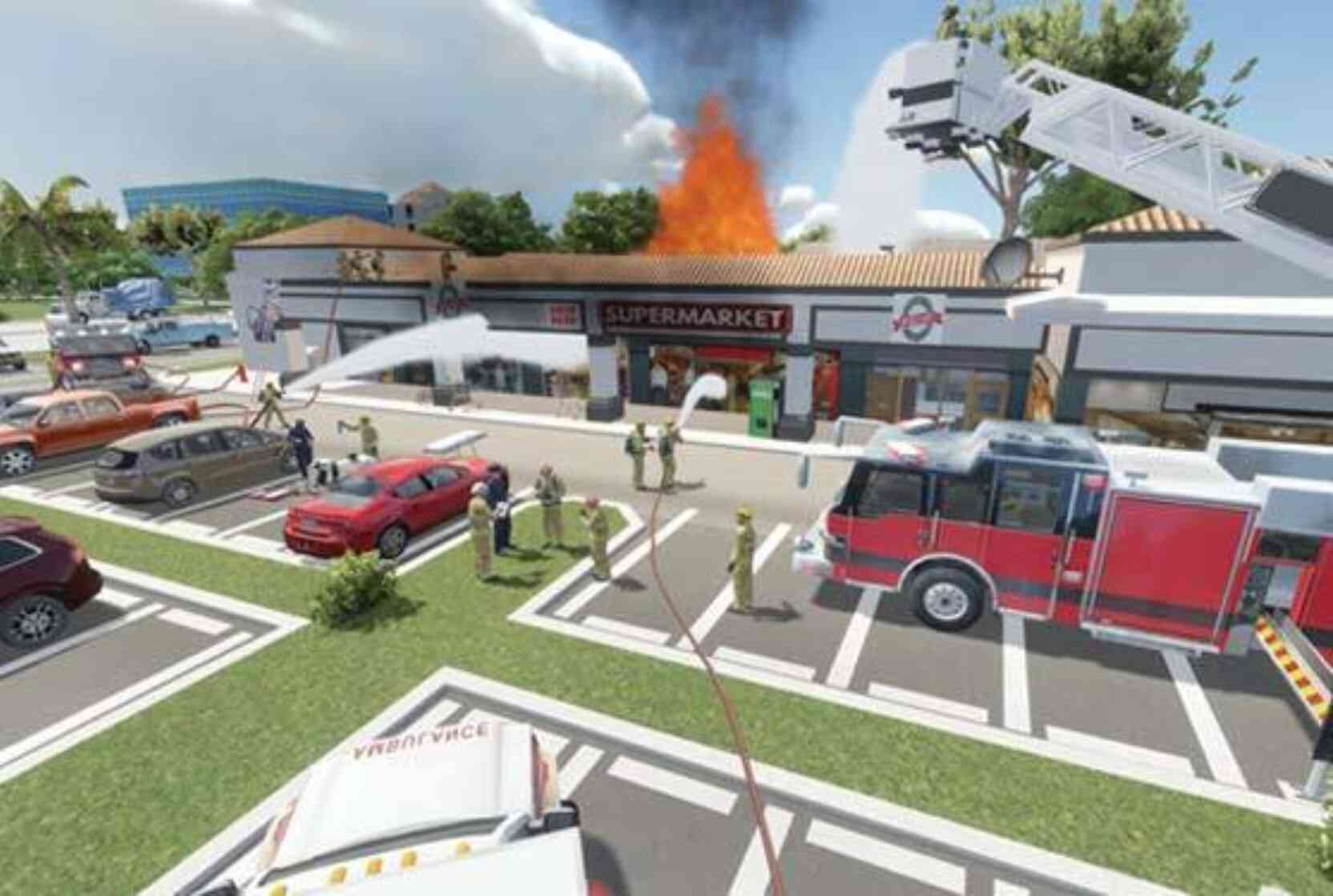


FutureShield has partnered with Kim Nielsen, retired training officer from Kingston Fire, to deliver XVR training to volunteer fire departments. This initiative, funded in part with the Desjardin GoodSpark Grant, recognizes the importance of first responders on the front lines and is a way to ensure our communities have the best training tools to prepare.
I had the chance to talk with Kim about the program and what he has been working on over the last few months.
Can you tell us a bit about who you are, your background?
My fire career began when I joined the National Defence Fire Services in 1980. For the next 33years I was posted around the country where I was stationed at various fire stations including CFB Ottawa, 19WG Comox and 8WG Trenton as well as a fire fighter for air operations on different naval destroyers. I began my training career at CFB Borden (CFFA) in 2001 where I had the opportunity to complete fire fighting operations for NDFS, in Afghanistan completing many tasks including the necessary fire protection of infrastructure and helo landing areas. In 2014 I retired from NDFS to become a Training Officer for Kingston Fire and Rescue. In this role I created numerous online training sessions which is where I was first introduction to XVR.
Can you share a bit about your previous experience working with FutureShield and XVR Simulation?
I first met Cynthia and was introduced to FutureShield at the Drivewise offices in 2018 where the team was presenting XVR capabilities to me. I think I surprised a lot of people with my ability to serious game, something I don’t think they were expecting from an “older” guy! I reminded them that simulation is used for training throughout the military, and that it was not just the younger generation who loved video games and could learn from this type of technology. From there I was hooked, my team utilized XVR in various training sessions within our department over the next couple of years and it was one of the most successful in most training session we completed.
Why do you think this program is important?
The goal of the program is simple, along with FutureShield and DriveWise, I want to expand the reach of XVR virtual reality training to volunteer fire departments across the country. Up until this point there has not been a cost-effective way for these smaller departments to access this industry leading training program – we remove that barrier.
A concrete benefit of my program is the type of scenarios that can be developed within the XVR software and are included without any additional cost. The VR technology XVR is built on allows us to immerse the trainees, so they actually experience the situation, no guesswork or pretend moments. It also allows the incident commander to move around the scene in the same manner as a real situation and watch the team’s response. The advantages of this type of training are endless, teams can create scenarios that would help departments implement new procedures, work out any potential challenges within the simulation and revise their workflow accordingly.
What are you most excited about in bringing this technology to volunteer fire departments?
It is hard to pick just one thing, but the list below is a couple of concrete examples of how I think smaller fire departments will immediately benefit -
How can volunteer fire departments interested in the training reach you?
The best way to reach me is via email and we can setup an initial meeting using Microsoft Teams. This allows us to create a personalized and meaningful training session designed for your specific department’s operations and ensure we understand, meet and hopefully exceed your expectations.
How can SkillGrader support Fire Departments who are using XVR as part of their training program?
XVR allows first responders to create virtual scenarios that simulate situations they face in a safe environment and SkillGrader is an ideal add-on. SkillGrader gives the trainer a way to accurately measure and report on personnel performance (individual and team) during XVR scenarios so they can ensure the training is working, determine what could be added and constantly improve training programs. SkillGrader does this by creating customizable forms that accurately reflect the unique scenarios that XVR supports. Assessors are given a tool to evaluate communication flow between command and on-scene teams, measure individual reactions, see if protocols are followed, and more, all through a simple form on a tablet. The data is immediately compiled and SkillGrader provides trainers with a report that identifies strengths and weaknesses and highlights critical actions missed. This report supports debriefs and training evaluation with objective data on how the team and individual performed.
For more details on this program and to set up a free demo please contact us at info@futureshield.com.
Experts discuss future of crime and intelligence at Seneca hosted event
The Future of Crime Intelligence & Analysis - Thank you for a fantastic day!
The Future of Crime Intelligence & Analysis - Speaker Announcements
